In our Ooltewah Dentist Office, we see patients who suffer from regular teeth grinding, also known as “bruxism.” Since stress is a major contributor to teeth grinding, we are dedicating this month’s post to suggestions to help you lower your stress levels.

Pain in the jaw from clenching teeth too tightly is bad enough, but stress can trigger many negative responses in our bodies, including headaches, high blood pressure, tense muscles, high blood sugar, heartburn, depression, and a weakened immune system. Here are a few ideas for getting your stress under control.
We’ve all felt stress and wished we could escape the pressures of modern life to experience complete relaxation like the people in those bath power commercials from the 70s and 80s, pleading, “Calgon, take me away…” The home is usually a sanctuary for taking a break from stressors, but this doesn’t work if the pressure comes from a growing credit card bill or a baby that won’t stop crying.
You don’t have to keep up the façade of being Superman or Wonder Woman around the house. If other members of the household aren’t pitching in, speak up and let them know ways they can help. Talk to your spouse or a child about cutting back or getting a job if their spending is making it more challenging to manage debt. Don’t be afraid to accept help from a support system of family and friends, especially if you are the primary caregiver for a child or an aging parent. Keep a stress diary to track what triggers episodes of clenching teeth and other symptoms.
It’s stressful knowing you’ve put on weight, aren’t getting enough activity, and not giving your body the nutrition it needs to perform at a normal level. You don’t have to hit the gym hard to experience changes. Simply walking around the neighborhood more often can make you feel more energetic and sleep better. Moderating your intake of stimulants like caffeine, nicotine, alcohol, and sugary foods can also help the nerves.
Whether it is a daily prayer or meditation, taking a short pause to look inward can lead to a feeling of gratitude and inner calm. Try mindfulness to shift your focus away from negative thoughts and anxiety. Yoga has been found to increase body and breath awareness, lowering cortisol levels, blood pressure, and heart rate. Soothing music and visits to the woods can also be very calming.
We’re all in favor of you showing off that beautiful smile. If watching a comedy takes your mind off stressors, make a date night of it. Light a scented candle if the aromas are pleasurable. Relish in social connections, including your church family, and take opportunities to cuddle, hug, and kiss when appropriate. A hobby like gardening may be enjoyable to you rather than hard work. A massage can alleviate physical pain from tense muscles. The companionship of a pet can also reduce stress, assuming your dog or cat behaves.
It’s easy to feel overwhelmed if you don’t know where to start. Sometimes getting a grip on stress is as simple as wrapping your head around what needs to get done to change things for the better. With an action plan, you can focus on doing something specific each day that removes or improves a stressful thing from your life, better manage your time, and stop procrastinating.
If you get riled up reading political posts on Facebook, don’t jump into debating someone whose views differ from your own. If something bothers you, limit your exposure to it. If coming to a dentist’s office for a regular cleaning fills you with dread, DO keep the appointment, but definitely let us know so we can find ways to alleviate those feelings when you arrive at our Ooltewah Dentist Office.
Easier said than done if you stress manifests as insomnia. As much as possible, give your brain time to calm down before going to bed and try to go to sleep at roughly the same time each day.
For many people, stress is synonymous with work: Making sure we get to the office on time, meet deadlines, say the right things to the boss. Earning a living doesn’t have to mean feeling miserable, though.
Easy enough, right? If your company offers paid vacation, it’s because it’s been proven that you’ll be more productive when you return from a bout of leisure. If you can’t afford a 2-week cruise to the Bahamas, find ways to do fun things closer to home. If you are feeling sick, your body needs time to rest so it can recover more quickly.
It’s easy to take on too much when we want to be liked at work and fear missed opportunities as a result, but you can find nice ways of letting people down gently and communicating when you are overburdened.
If you employ these strategies and feel relaxed yet still experience tenderness in jaw muscles, your dentist may use X-rays to detect temporomandibular joint (TMJ) disorders or other dental problems. A sleep study might assess whether episodes of teeth grinding are due to sleep apnea or another sleeping disorder. Splints and mouth guards that fit over the upper and lower teeth keep them separated to avoid damage from clenching and grinding. Another treatment for severe bruxism is Botox injections. In severe cases affecting a patient’s ability to chew properly, reshaping of a tooth or use of crowns may be needed to repair the damage.
These are a few of the common strategies people use to reduce their stress levels and address teeth clenching or grinding. Consult with a doctor if you have a medical condition or before starting new exercise routines. Consider visiting a licensed therapist or counselor if the bruxism is related to anxiety. Please feel free to ask Dr. Keith Tedford for ways to treat bruxism or other dental conditions. You can schedule an appointment at Tedford Family Dentistry by calling (423) 238-8887.
Photo: © Studio Grand Web / 123RF Stock Photo
Blog © 2019 Tedford Family Dentistry: Tedford Keith DDS | Ooltewah TN 37363
 We all want a more youthful appearance, especially as we approach middle-age and worry about getting passed over for jobs in favor of younger candidates or fear that we are losing our sex appeal. Millions of Americans fight to hide signs of the natural aging process with injections to tighten the skin and products to conceal gray hairs. One positive impact of cosmetic dentistry performed at our Ooltewah TN dental office is a more youthful appearance. For those with teeth in good condition, teeth whitening or dental veneers can give the illusion of a more youthful smile. For others who’ve lost teeth over the years, dental implants surgically positioned into the jawbone create a similar effect.
We all want a more youthful appearance, especially as we approach middle-age and worry about getting passed over for jobs in favor of younger candidates or fear that we are losing our sex appeal. Millions of Americans fight to hide signs of the natural aging process with injections to tighten the skin and products to conceal gray hairs. One positive impact of cosmetic dentistry performed at our Ooltewah TN dental office is a more youthful appearance. For those with teeth in good condition, teeth whitening or dental veneers can give the illusion of a more youthful smile. For others who’ve lost teeth over the years, dental implants surgically positioned into the jawbone create a similar effect.
Think back to when you were a younger person, perhaps in your twenties, with beautiful white teeth freshly aligned from wearing braces in your teens. Wouldn’t it be great to have those pearly whites again? Like the circles inside a tree marking the passage of time, the shade of the enamel on our teeth can reveal our age, even for those who’ve taken great care of their teeth, brushing and flossing daily and scheduling regular cleanings twice a year as recommended. It’s simply inevitable for teeth to stain as a result of aging, combined with tobacco use, years of drinking colas or coffees, eating acidic foods, or possibly as a result of some trauma experienced along the way. Teeth whitening at our Ooltewah cosmetic dentistry office lightens teeth and helps to decrease this discoloration. Another alternative is applying thin pieces of porcelain veneers to add strength and mask natural teeth that are chipped, stained, or worn-down over time.
Whitening is the cheapest and easiest way to make a smile look younger, says Bruce Seidner, a fellow at the Academy of General Dentistry. “However, not everyone can have their teeth successfully whitened. Sometimes a person's enamel or damage to the teeth make it difficult to achieve lasting results. In those cases, a veneer covering the tooth may be a better option,” Seidner told US News & World Report.
When simple teeth whitening and veneers fail to improve the look of teeth, dental implants become the next option if someone wants to avoid dentures, which can slip and not feel as natural. It’s important for surgically implanted teeth to match the tone of the surrounding teeth, if any, in order to appear natural. Missing teeth can cause a more “sunken-in” appearance and add wrinkles to the face. The effects of gum disease building over generations can impact the look of our smile as well and may require grafting to restore receded gums. It’s comforting to know that age doesn’t disqualify us from having a better smile.
No two people age in exactly the same way. Regardless of the condition of the mouth, we can always look better with some effort. With cosmetic dental procedures performed in Tedford Family Dentistry’s Ooltewah TN office, you can enjoy and embrace your age with a more confident, youthful smile that helps you compete for that job or win the attention of that special someone.
Dr. Keith Tedford can consult with patients who want to improve the appearance of their teeth and achieve a more youthful look. To meet with him and our staff, call us at (423) 238-8887 or stop by our office at 9380 Bradmore Lane, Suite 108, in Ooltewah TN to schedule an appointment with Dr. Tedford.
Photo: © GStockStudio / 123RF Stock Photo
Blog © 2018 Tedford Family Dentistry: Tedford Keith DDS | Ooltewah TN 37363
If you experience frequent jaw pain, headaches, migraine, or a painful sensation around your ear, you may have an inflamed TMJ, or temporomandibular joint. You might hear clicking or popping while chewing or talking if this condition affects you. In this blog, we’ll talk about the symptoms and possible causes of TMJ pain, how Dr. Tedford diagnoses the disorders, and how to treat TMJ and the jaw damage causing the painful symptoms.
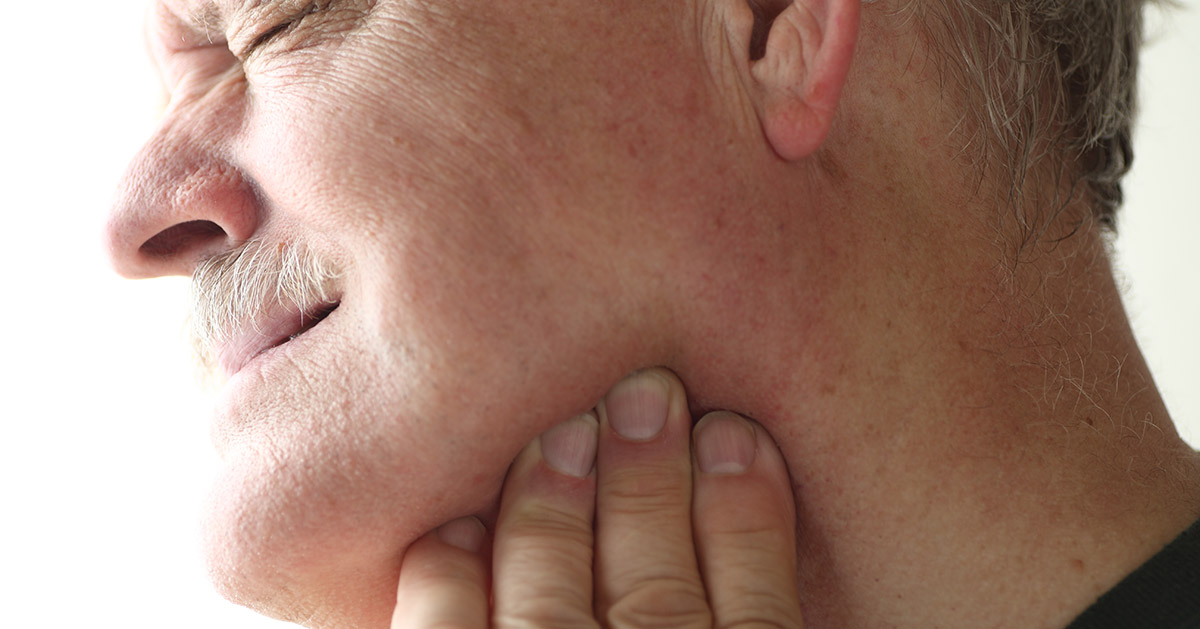 If you’re under a lot of stress, you may constantly clench or grind your teeth, which eventually damages the joint connecting the lower jaw to the bone on the side of the skull. You may not even be aware that you are doing this during the day in stressful situations or while asleep at night. This damage from putting pressure on the jaw usually rears its ugly head as the pain of headaches.
If you’re under a lot of stress, you may constantly clench or grind your teeth, which eventually damages the joint connecting the lower jaw to the bone on the side of the skull. You may not even be aware that you are doing this during the day in stressful situations or while asleep at night. This damage from putting pressure on the jaw usually rears its ugly head as the pain of headaches.
You can treat the condition by focusing on relaxation techniques, stretching exercises to ease the strain on muscles while exhaling and by using mouth guards to prevent jaw clenching. Pain relievers like ibuprofen or acetaminophen can help to manage the pain but their use should be limited to avoid possible side-effects like gastrointestinal bleeding.
Of course, you can experience pain in your jaw even if you’re a relatively relaxed person. TMJ pain can also result from arthritis as the surface of bones wears away, the connecting joint ligament becomes inflamed, or as a consequence of gum disease, neuropathic nerve pain, vascular pain, sinus conditions, or a condition called osteomyelitis that is essentially an infection in the bones and surrounding tissues. Whatever the cause, the result is suffering that lowers the patient’s quality of life. By the time TMJ is diagnosed, a lot of damage may already be done. That’s where Tedford Family Dentistry comes in to offer solutions from those patients suffering from TMJ/TMD disorders in the Ooltewah TN, Collegedale TN, greater Chattanooga, and Cleveland TN communities.
Of course, the occasional headache may have another cause, but if TMJ is suspected, Dr. Keith Tedford discusses symptoms and examines the jaw to observe the range of motion, identify specific sites of pain or discomfort, and listen as the mouth is opened or closed. Dental X-rays may be needed to inspect the bones and reveal problems. To arrange a visit to discuss your jaw pain, call (423) 238-8887. We can set up a time to visit our dental office at 9380 Bradmore Lane, Suite 108, Ooltewah TN 37363.
In addition to the relaxation techniques and mouth guard described above, the symptoms of TMJ disorders may be relieved with prescribed pain relievers and anti-inflammatories, low doses of antidepressants like amitriptyline that can sometimes be effective for TMJ, or short-term use of muscle relaxants. As mentioned on our dedicated page about TMJ/TMD Disorders, surgical procedures to treat the condition are typically only employed only after other treatments have failed.
The first step is to attempt the at-home treatments we recommend, then Dr. Tedford can repair the jaw damage for long-term dental care.
To arrange a visit to discuss your jaw pain with Dr. Keith Tedford, call (423) 238-8887 or email This email address is being protected from spambots. You need JavaScript enabled to view it.. This can be the year that he offers TMJ treatments that work for our patients in the Chattanooga, Ooltewah, Collegedale and Cleveland communities.
For more information on Treating TMJ:
https://medlineplus.gov/magazine/issues/winter10/articles/winter10pg15a.html
https://www.webmd.com/oral-health/guide/temporomandibular-disorders-tmd
https://www.medicinenet.com/temporomandibular_joint_syndrome_tmj/article.htm
https://www.healthline.com/health/tmj-exercises
Photo: © Nebari / 123RF Stock Photo
Blog © 2019 Tedford Family Dentistry: Tedford Keith DDS | Ooltewah TN 37363
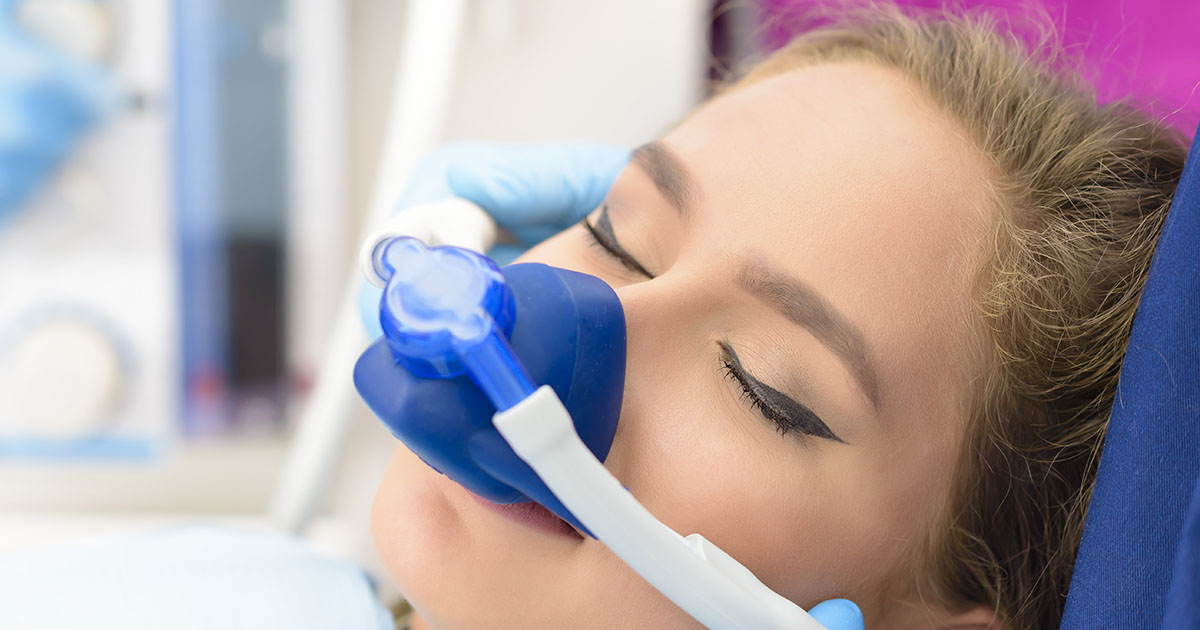 To ease anxiety during dental procedures, a mild form of sedation called Nitrous Oxide can be used. We are happy to explain the procedure, why it relaxes patients, and how it makes them feel.
To ease anxiety during dental procedures, a mild form of sedation called Nitrous Oxide can be used. We are happy to explain the procedure, why it relaxes patients, and how it makes them feel.
Among the benefits of its use are the reduction or elimination of anxiety in patients, enhancing patient communication and cooperation, raising the pain reaction threshold, making longer appointments more tolerable, aiding in the treatment of mentally or physically disabled patients, reduction of gagging, and general sedation.
Nitrous Oxide, commonly known as “laughing gas,” is a colorless, almost odorless gas, first discovered in 1772 by the English scientist and clergyman Joseph Priestley (who was also famous for being the first to isolate other important gases such as oxygen, carbon monoxide, carbon dioxide, ammonia, and sulfur dioxide). He hoped it would serve as a preserving agent, but with no success. Humphry Davy of the Pneumatic Institute in Bristol, England, experimented with the physiological properties of the gas, such as its effects upon respiration. He noted that it appeared “capable of destroying physical pain” and might serve as an anesthetic agent in minor surgical procedures.
Before widespread use for that purpose was adopted, “laughing gas” was primarily used recreationally, sometimes at carnivals where the public would pay to inhale the gas, laughing and acting silly until the euphoric effect wore off.
During one of these public nitrous oxide exhibitions, a local dentist named Dr. Horace Wells watched with interest as a man injured his leg while staggering into some nearby benches, then went back to his seat, unaware of his injury until the effects wore off. The next day, Dr. Wells inhaled the nitrous while another local dentist extracted one of his molars. Experiencing no pain during the procedure, he declared that a dental and medical painkiller was born, replacing the far more dangerous (and explosive) ether as an anesthetic. Ironically, Dr. Wells would later be given the accolade of discovering anesthesia, but he was shunned while demonstrating with a tooth extraction at Harvard Medical School in Boston after the patient expressed some discomfort. Never mind that the patient would have experienced excruciating pain without the use of the nitrous!
More than a century later, dentists now use Nitrous Oxide as a mild sedative and analgesic. It offers some degree of painkilling ability while reducing anxiety that patients may have toward dental treatment.
Use of laughing gas is not always effective because it requires the patient to breathe through the nose while his or her mouth is open to allow access to the teeth and gums.
Dentists today use laughing gas because it is safe and effective. Its use is mostly limited to professionals because it is a compressed liquefied gas and asphyxiation risk. The euphoria felt during use causes short-term decreases in mental performances and manual dexterity, as well as spatial and temporal disorientation. In other words, you’re fine inhaling it while comfortably seated during a dental procedure, but you don’t want to run a marathon or try to drive a racecar while huffing the stuff.
Nitrous oxide also depletes vitamin B12 levels, but this is generally not an issue when administered during a dental procedure. Nitrous oxide does have a negative environmental impact on the greenhouse effect, but this is primarily from natural emission from bacteria in soils and oceans, as well as the burning of fossil fuels. We also have to prevent room air contamination due to the occupational risks associated with prolonged exposure to the gas.
Like any substance producing euphoric states, laughing gas is susceptible to abuse. Many states have laws regulating the possession, sale, and distribution of nitrous oxide. Such laws usually ban distribution to minors or limit the amount of nitrous oxide that may be sold without a special license. Nitrous oxide/oxygen must be administered only by appropriately licensed individuals, or under the direct supervision thereof, according to state law. The practitioner responsible for the treatment of the patient and/or the administration of analgesic/anxiolytic agents must be trained in the use of such agents and techniques and appropriate emergency response.
According to the American Academy of Pediatric Dentistry, nitrous oxide exhibits a superior safety profile with no recorded fatalities or cases of serious morbidity when used within recommended concentrations. Nausea and vomiting are the most common adverse effects, seen in 0.5 percent of patients.
When reviewing whether your child is a suitable candidate for nitrous use, medical history is assessed. It’s important to tell us about:
Nitrous Oxide use has an excellent safety record precisely because it is used by trained personnel on carefully selected patients with appropriate equipment. The reason we ask questions during a procedure is to monitor a patient’s level of consciousness and to make sure the respiratory rate is suitable for normal breathing.
It's called "laughing gas" for a good reason. Reactions to dental anesthesia have been the stuff of memes. “David After Dentist” is the name of a YouTube video uploaded in January 2009 featuring a young boy’s reaction after a May 2008 dentist appointment. The clip is known for receiving more than 3 million views in three days, becoming YouTube's second most watched video of that year. After his surgery was completed, the youngster asked deep questions including "is this real life?" and "Is this going to be forever?" It was even spoofed in a Star Wars parody. A heavier form of sedation than nitrous oxide was likely used in this instance.
At the end of most procedures, we administer 100 percent oxygen once the nitrous oxide has been discontinued. This usually results in patients feeling like their normal selves again before leaving our office. We encourage patients to communicate about any residual disorientation and to wait additional time in the waiting room before attempting to drive if there are residual effects felt from the laughing gas. Also, maybe make sure the person taking you home promises not to record you on video and share it with the world unless you are a really good sport about that sort of thing.
Let us know if you or your child may benefit from laughing gas during a dental procedure. We are happy to discuss specifics at our office by calling (423) 238-8887 or scheduling an appointment to visit our family dentistry office located in Ooltewah, TN. We also serve Collegedale TN, Chattanooga TN and Cleveland TN communities.
Photo: © One Blink / 123RF Stock Photo
Blog © 2018 Tedford Family Dentistry: Tedford Keith DDS Ooltewah TN 37363
 Part of our mission for Chattanooga Preventive Dentistry is encouraging and educating patients to achieve a more balanced, healthy life in general. Poor nutrition affects oral health in ways that may not seem as obvious as usual culprits of gum disease or cavities.
Part of our mission for Chattanooga Preventive Dentistry is encouraging and educating patients to achieve a more balanced, healthy life in general. Poor nutrition affects oral health in ways that may not seem as obvious as usual culprits of gum disease or cavities.
It’s easy enough to grasp what’s good or bad for us, but how are we to actually put better eating habits to work? There are a few suggestions you may want to try if you’ve always wanted to eat better but weren’t sure how to make it happen…
How do you get the family to skip candy, cookies, and cake to instead munch on kale? Follow a process to gradually wean yourself of these unhealthy foods and replace them with healthier alternatives. It is important to always replace bad food with healthy food that you enjoy. For example, eat fruits as snacks, drink water instead of soda, eat whole grain bread instead of white bread, add steamed greens to dinner, focus on poultry and seafood while limiting intake of red meats, make homemade pizza instead of ordering, and snack on nuts like unsalted peanuts or raw almonds instead of potato chips. Berries can offer a sweet substitute to satisfy sweet cravings instead of sugar-loaded chocolate candy.
Regardless of how it is achieved, fruits and vegetables need to make up half of what is eaten daily, according to the U.S. Department of Agriculture. You don’t have to become a vegetarian to eat better, but you’ll end up healthier the more you transition away from sugary foods and starches to dishes that grow out of the ground instead of coming in a can. With these healthy eating guidelines, you can reduce your risk of enamel erosion and cavities to keep your smile looking healthier, plus you may just live longer too.
Photo: © Evgenya Amanenko / 123RF Stock Photo
Blog © 2018 Tedford Family Dentistry: Tedford Keith DDS Ooltewah TN 37363
Our seniors are precious and need special consideration to remain healthy. Dr. Tedford works to provide affordable senior dental services like dentures, implants, bridges, and more to the Ooltewah, Chattanooga, Collegedale, and Cleveland, TN communities. In fact, we have a dedicated page on this website to specifically address senior citizen dental care needs.
Readers can learn more about minimizing root decay that can lead to age-related gum loss and tooth loss. Lost Bone mass can also harm the jaw and increase the need for dental implants. Wear and tear related to time also impacts how well dentures fit. Decades of exposure to coffee, wine, and sodas show erosion of the dental enamel. Dr. Tedford assists seniors with routine dental care and cleanings, implants, dentures, veneers, bridges, and teeth whitening.
It’s important that our retirement years be spent comfortably, which includes retaining our ability to chew food correctly and without pain to nourish the body. Poor dental health can lead to problematic infections, according to experts at the University of Rochester Medical Center. Brushing teeth twice daily, flossing, and going for regular dentist checkups are recommended as part of a Consumer Reports Health Checklist for Seniors.
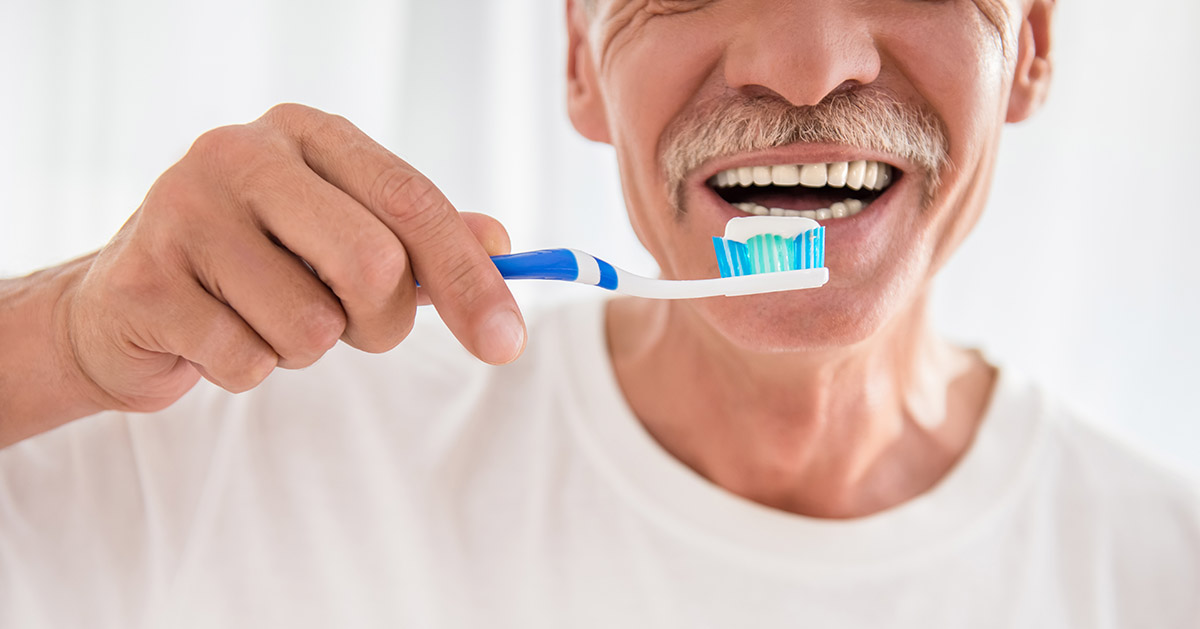 It makes perfect sense that our teeth and gums require extra attention as we get older, the same as other health conditions complicated by age. Some of the unique situations affecting seniors:
It makes perfect sense that our teeth and gums require extra attention as we get older, the same as other health conditions complicated by age. Some of the unique situations affecting seniors:
And just because someone is of advanced age, that doesn’t mean we never see patients wishing to correct crooked teeth by getting fitted with braces or have teeth whitened. If someone has been sensitive about his or her smile for most of their life and now have the discretionary income to do it, why not?
Special care is needed when treating dementia patients who suffer from jaw, tooth and gum pain. It’s also a good idea to prepare a list before an appointment to tell Dr. Tedford during visits about all drugs taken by seniors, the dosage and how often these medications are taken. Such information can affect the recommended Senior Dental treatment plan.
Seniors are the primary consumers of dental products like dentures, bridges, and dental implants. The latter can be a great option following tooth loss, but the patient needs healthy enough gums and bone to hold an implant in place. Bone density loss is a significant concern for women age 65 and older in particular. Discuss this Dr. Tedford during the initial consultation before such a dental procedure happens.
Access to regular dental care is often difficult for seniors. Medicare doesn’t cover it, and Medicaid coverage is limited. Out-of-pocket expenses can be prohibitive to those on a fixed income. Most seniors must rely on either Medicare Advantage plans or private insurance to get coverage, but there are options.
Programs of All-inclusive Care for the Elderly (PACE) is a Medicare and Medicaid program that allows people 55 or older who otherwise need a nursing home level of care to remain in the community, covering dentistry, x-ray services, and other services. There are two PACE organization plans in Tennessee, both through Alexian Brothers Community Services.
The Senior Dental Care insurance program is available to most Medicaid recipients at no additional cost. Veterans may be eligible for dental benefits provided through the Department of Veterans Affairs (VA). Ask us about payment options such as payment plans and reduced prices based on need.
Dr. Tedford wants to help seniors keep their natural teeth longer and maintain good oral health so they can smile through their golden years. Call us at (423) 238-8887 or make an appointment to visit our office at 9380 Bradmore Lane, Suite 108, Ooltewah TN 37363.
Photo: © Vadim Gozhda / 123RF Stock Photo
Blog © 2018 Tedford Family Dentistry: Tedford Keith DDS Ooltewah TN 37363
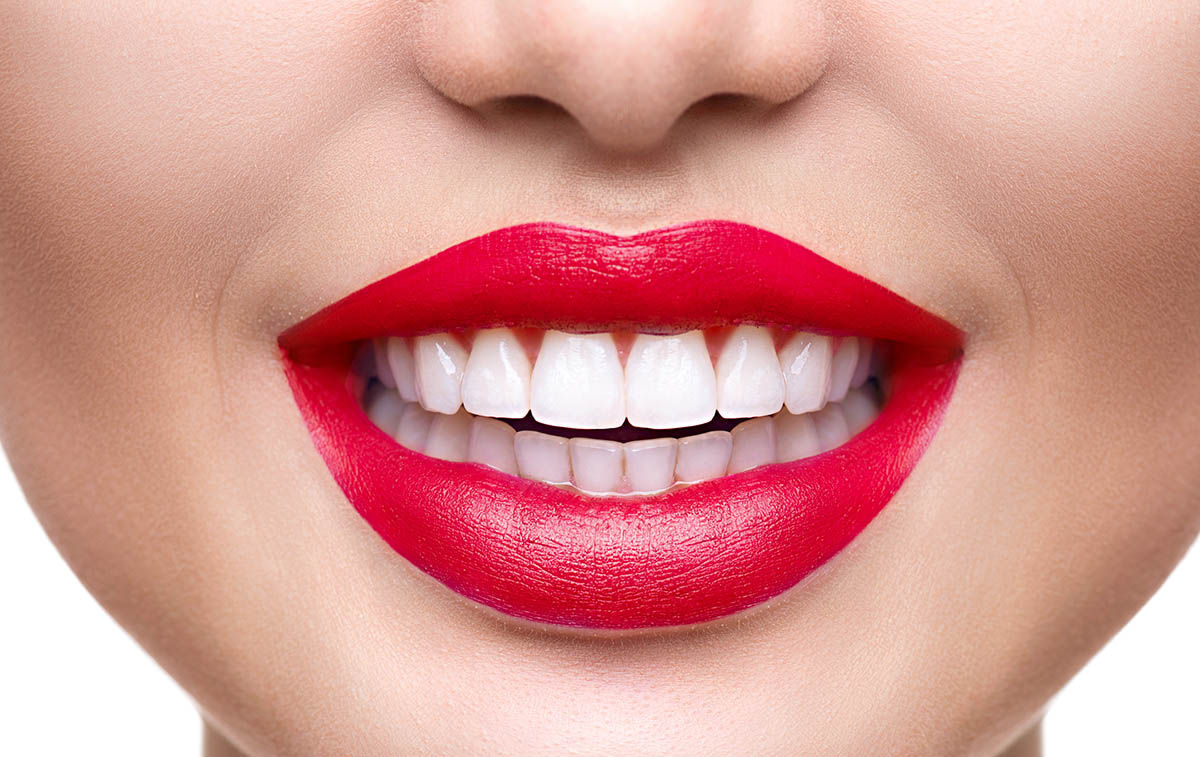
A great smile can be positively life-changing. Taking good care of our teeth helps, but cosmetic dentistry procedures like dental veneers can take us “over the goal line”, as the saying goes. In this month’s blog, we look at reasons for getting dental veneers, some of which go beyond merely cosmetic considerations.
When teeth whitening fails to completely decrease stains and discoloration, dental veneers become the recommended cosmetic dentistry procedure. The thin wafer of porcelain becomes bonded to camouflage the actual color, shape, or position of the existing tooth. All cosmetic procedures work best when they enhance your smile rather than radically change it. You want people to notice the positive change but remain puzzled as to what was done. The smile should improve without appearing fake.
Veneers can be done to one tooth (as in, say, repairing a single chipped tooth after tripping and falling) or a group of teeth, depending on your needs and budget. Veneers also support natural teeth that have been weakened or compromised by broken or old fillings.
Veneers and crowns are methods of fixing gaps in teeth, along with dental bonding, implants, dentures, retainer/orthodontics, braces, and teeth gap bands. The differences between Crowns and Veneers? Both involve the bonding a thin porcelain shell to teeth with the goal of fitting properly and looking natural. Whereas veneers bond to the front of the tooth, dental crowns fit OVER most of a tooth. The term “bridge” refers to a type of crown to fix several teeth at once.
Another distinction: Veneers primarily address cosmetic needs, creating a uniform look. Crowns, in contrast, usually fix broken/cracked teeth caused by some sort of trauma or decay. You may also see the term “Lumineers,” which refers to a brand of veneers that are thinner than traditional veneers.
It’s pretty amazing that veneers have the durability to withstand years of wear and tear (while repelling stains) even though they are composed of the thinnest dental porcelain. Ideally, when shopping for a dentist nearby to add dental veneers, you’re able to ask a former patient who had the procedure a decade before if he or she remains happy with the results. Sometimes you can use a person’s Facebook photo gallery as a way of seeing before and after photos to at least get a sense of the cosmetic benefits of dental veneers.
The natural enamel of your teeth gets eaten away by years of consuming acidic foods and drinks. Lost enamel does not grow back, but veneers can serve as a treatment for enamel abrasion and enamel erosion. Because we remove a portion of the outer layer of enamel on a tooth before bonding veneer teeth (for the purposes of a snug fit), the procedure cannot be reversed.
Perhaps veneers are just one part of cosmetic enhancements you have planned. It’s important to discuss these with your cosmetic dentist because other forms of facial plastic surgery can negative what we are trying to accomplish. Lip injections, for example, can cast a shadow over teeth, making them appear gray. To find the perfect shade of grey for veneers, to match other teeth and appear natural, some dentists use a person’s skin tone to customize the shade that looks best.
Affordability can be a factor in deciding whether to get this procedure done, as it is generally great to get but not usually essential. You should talk to your dentist to get all of the information needed to decide whether dental veneers are an investment that will make a positive change in your life. Factors affecting price can include the experience level of the dentist and how many veneers you get at one time. Incorrect placement can lead to requiring several trips to a dentist to have improperly placed veneers fixed. You also need to consider whether your dental insurance plan covers any part of the cost of veneers since they are a cosmetic procedure. We are happy to give you a quote when you call (423) 238-8887 to set up an appointment with Dr. Keith Tedford.
Once you have your veneers, you should avoid gnawing on ice or using your teeth to open packages. Barring any accident impacting the mouth, you should not experience any breakage or damage to your veneers, even under the daily pressures of biting and chewing food. While there may be some increased sensitivity to hot or cold temperatures for the first few days after a procedure, this usually does not last. Drinking a hot coffee or eating a cold bowl of ice cream should not produce any noticeable effect on your veneers.
To keep your veneers in top shape, keep up with regular visits to your dentist twice a year and be sure to brush and floss daily. You don’t want to develop any cavities because they can compromise the integrity of the veneers. If you’re going to go to this much effort to improve your smile, we’re sure that you probably don’t need too much reminding to take basic care of your oral health.
Veneers can make a big impact on the quality of your smile. Because the procedure is irreversible, you definitely want to put some forethought into the work that is to be done and the desired outcome. We encourage you to use this information when researching whether to pursue veneers for yourself. Learn more about our Cosmetic Dentistry in Ooltewah, TN, then call us at (423) 238-8887 to set up an appointment with Dr. Keith Tedford.
Copyright: subbotina / 123RF Stock Photo
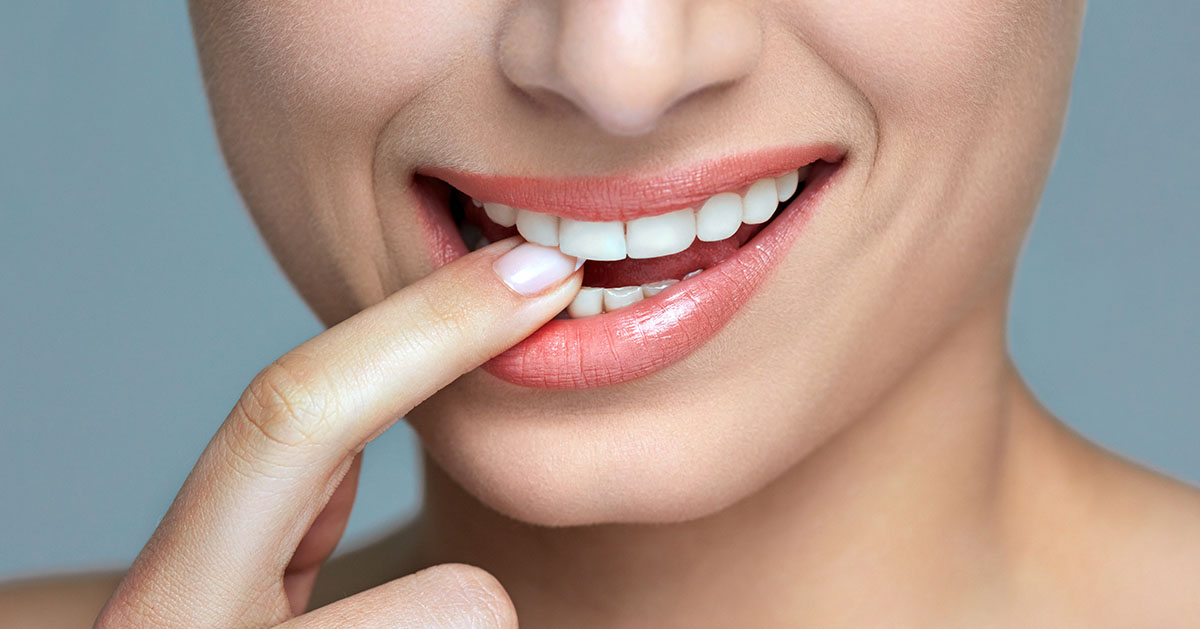 A bride or groom feeling self-conscious about their smile may ask a wedding photographer to use Photoshop for the illusion of having white teeth in their wedding photos. Perhaps you’ve adjusted the settings on Instagram to hide a yellow tinge in your own smile before sharing a social media post. In real life, we can’t hide behind layers of pixels. Every time we encounter someone face-to-face, they see our teeth and recognize whether the enamel is yellowed or stained.
A bride or groom feeling self-conscious about their smile may ask a wedding photographer to use Photoshop for the illusion of having white teeth in their wedding photos. Perhaps you’ve adjusted the settings on Instagram to hide a yellow tinge in your own smile before sharing a social media post. In real life, we can’t hide behind layers of pixels. Every time we encounter someone face-to-face, they see our teeth and recognize whether the enamel is yellowed or stained.
If you’ve worried about the appearance of your smile, perhaps you’ve researched how to whiten your teeth at home. Maybe you’ve wondered “how much does professional teeth whitening cost?” without ever following through to find out. But while the Internet may offer lots of ways to cut corners and save money, including home remedies for removing plaque naturally, you may not want to experiment with unqualified advice off the web about do-it-yourself bleaching yours with chemicals that may not even do anything.
Cosmetic services by a professional dentist, on the other hand, come with the expectation that procedures for teeth whitening to decrease such discoloration will be safely performed and prove effective, leading to better results and, in turn, more self-confidence.
In this month's blog, Tedford Family Dentistry (which offers teeth whitening at our Ooltewah TN dentist office) wants to shed some light on real solutions to this common issue.
Copyright: puhhha / 123RF Stock Photo Written by Steven Stiefel
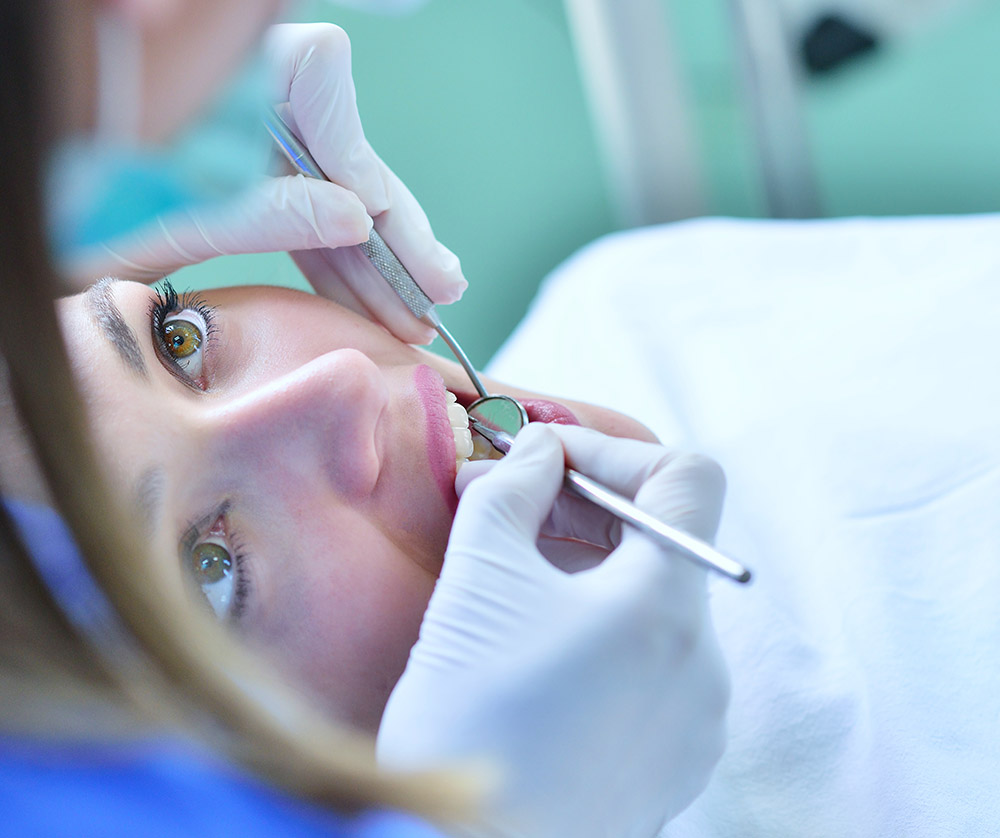 Do you know how to stop gingivitis? Does your mouth bleed when you brush your teeth? Noticing plaque and tartar above the gumline? Gingivitis, an inflammation of the gums, appears as the first sign of someone at risk for periodontal disease. Join us in learning how to stop Gingivitis.
Do you know how to stop gingivitis? Does your mouth bleed when you brush your teeth? Noticing plaque and tartar above the gumline? Gingivitis, an inflammation of the gums, appears as the first sign of someone at risk for periodontal disease. Join us in learning how to stop Gingivitis.
At some point, a dentist has no doubt warned you about it before, but you should take gum health seriously. If left unchecked, a domino effect of oral damage progresses, often resulting in the loss of one’s teeth and increased risk of serious health conditions, including heart disease, stroke, diabetes, respiratory infections, and other afflictions. Preventing that from happening is worth 3 to 5 minutes of your time, twice a day, right?
A survey reported in the Journal of the American Dental Association found that a majority of adults have gingivitis. This suggests that people aren’t taking good enough care of their teeth beyond occasional cleanings with their dentist. With that in mind, our dentists near Collegedale TN offer five ways to stop gum disease and the damage caused by gingivitis:
The American Dental Association recommends taking the time to brush your teeth in the morning and before bedtime. Flossing should happen during one of those cleaning sessions at home. It’s easy to forget or disregard if you’re in a hurry, but we should make oral health an important part of our daily routine.
Gingivitis starts with plaque accumulating around the gumline. People often neglect the gums when brushing, but you can easily attack both areas at the same time by angling your toothbrush at a 45-degree angle. You might also occasionally “scrape” the tongue with your toothbrush to remove bacteria and toxins.
Copyright: fsstock / 123RF Stock Photo
Oddly, finding a dentist is sometimes one of the last things people look into when they move to a new area. They find their dry cleaner, child's school, family doctor and favorite restaurants before their dentist. However, seeing a dentist can be very important to your overall health. There are many things to consider when searching for a new dentist. Below are a few things to consider.
If you use Google to research "dentists near me", Google will provide you with a screen filled with options split into 3 sections.
Google Reviews and other 3rd party review sites are a good, unbiased way to learn about a dentist and how their patients feel about the staff, overall experience and more. Third party sites publish all reviews - the good, the bad and the ugly. Consumers know the reviews are legitimate. That is why 8 out of 10 consumers trust online reviews as much as personal recommendations.
Research the dentists' websites to make sure that they offer services that meet your needs. Some dentists specialize in certain areas, while others may offer a wide range of services that meet the needs of your entire family -- from pediatric dentistry to senior dental services. You might also learn about their staff and informative blog posts.
You trust your friends and family, and they might be able to recommend a really good dentist. However, you'll still want to do some basic research to make sure their recommendation meets your needs as far as specific services beyond standard teeth cleaning.
Check to be sure that the dentist near you is part of professional dental organizations such as the ADA, Academy of General Dentistry and the Dawson Alumni Association - Dedicated to Complete Care Dentistry.
After you have done your research, and have been to visit the dentist for the first time, you can ask yourself questions such as:
If all went well, you should feel confident that you did indeed "find the best dentist near me".
Copyright: maxpro / 123RF Stock Photo